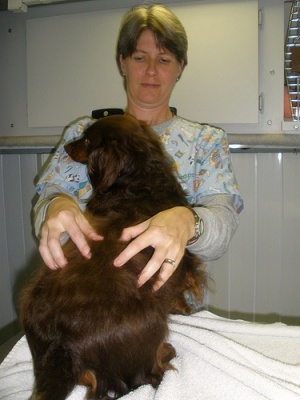
In the last ten years, veterinary emergency referral practices have proliferated across the nation. Back in the day, there were fewer options and veterinary schools were the gold standard. With the recent shift towards specialization in the industry, there are now many options for emergency, referral, and critical care hospitals. But not all hospitals are created equally. The following is a guide for evaluating your referral emergency practice and will help those without an emergency referral practice find and choose one wisely. We recommend that every pet owners should have an emergency referral hospital pre-chosen in case your pet should have a health crisis requiring immediate quality care, and this is how to chose the right hospital:
- When your pet goes to an emergency hospital, it is very important that hospital has a good relationship with your local veterinarian. Because your pet will likely need to have ongoing care or monitoring by your local veterinarian after you leave the emergency hospital, it is important that the referral hospital makes a proactive effort to have the medical records and treatment history transferred to the local veterinarian.
- The very best hospitals have the policy that the emergency or referral veterinarians must physically call the local veterinarian to explain what happened and what needs to happen. You should ask the vet which emergency referral hospital they have the best relationship with and factor this information into your decision.
- What your local veterinarian recommends may not be best for you, so be careful. You want to find out who has an ownership stake in the emergency hospital because often many local veterinarians invest in a new emergency hospital – just ask the vet. In fact, it is good that they do this because we wouldn’t have as many emergency hospitals – but you should ask for choices for referral and emergency hospitals regardless.
- Visit the hospital when you are nearby and ask for a tour. In the veterinary industry, this is a common and acceptable request. This will allow you to evaluate the hospital’s staff’s’ friendliness, the cleanliness of the hospital, and you can inquire about what services and specialists they have on site on a daily basis. Don’t feel bad to ask the vet to speak with them.
- Before you get to the emergency room, you may need to carry out some first aid: This means that you will need a first aid kit. A supply checklist for a pet first aid kit can be found on the American Veterinary Medical Association’s website.
- A good referral emergency practice should have staff there 24/7, and provide the following specialties: Ophthalmology, dermatology, internal medicine, soft tissue surgery, orthopedic surgery, radiology, cardiology and critical care. They should also have ultrasound on site or some type of advanced imaging. It is also nice if they have endoscopic scopes, which can be used for diagnosing and treating many diseases in a less invasive manner.
- Ideally, the emergency referral hospital should be within a one-hour driving distance: This isn’t always possible, especially in rural areas. To see what your choices are, we recommend you carry out a search at The Veterinary Emergency and Critical Care Society webpage. Using the “public” tab, search for emergency hospitals by entering in your country, and state and set the search results for 100. This will give you a list to start with.
- If you don’t have all the money in the world, (and who does?) you need to be sure that you can finance your pet’s care. Check to see if they offer payment options such as CareCredit, a third-party financing payment option. If you anticipate that your pet may need health financing in the future, consider pre-applying for the card at CarCredit. If you don’t have a card, the credit check and approval process is very quick timing in at about ten minutes. Their interest rates are very favorable if you can pay down the principal in a timely manner. Don’t be surprised if a hospital will require a deposit and/or a credit card before your pet is seen. This isn’t standard practice at every hospital but is not uncommon. You should ask the hospital what their payment policies are when evaluating a potential emergency and referral practice.
- Ask around and check the reviews. Pet owners love to talk about their veterinary experiences anyway. One of the best ways, in our opinion, to evaluate the staff, facilities, punctuality, and value of a practice is to visit VetRatingz for in-depth reviews.
- Get a second opinion. Request a copy your pet’s medical records when you leave a referral or emergency hospital. Ask the vet to have a look at the records and get their opinion. You can also upload your veterinary medical records and ask a vet what they think on the online veterinary website VetLIVE.
This list may seem a bit daunting, but being prepared with a high quality cost-effective emergency veterinary hospital will not only lead to better health outcomes for your pets but will also ensure that your money is spent wisely.
Related articles:


